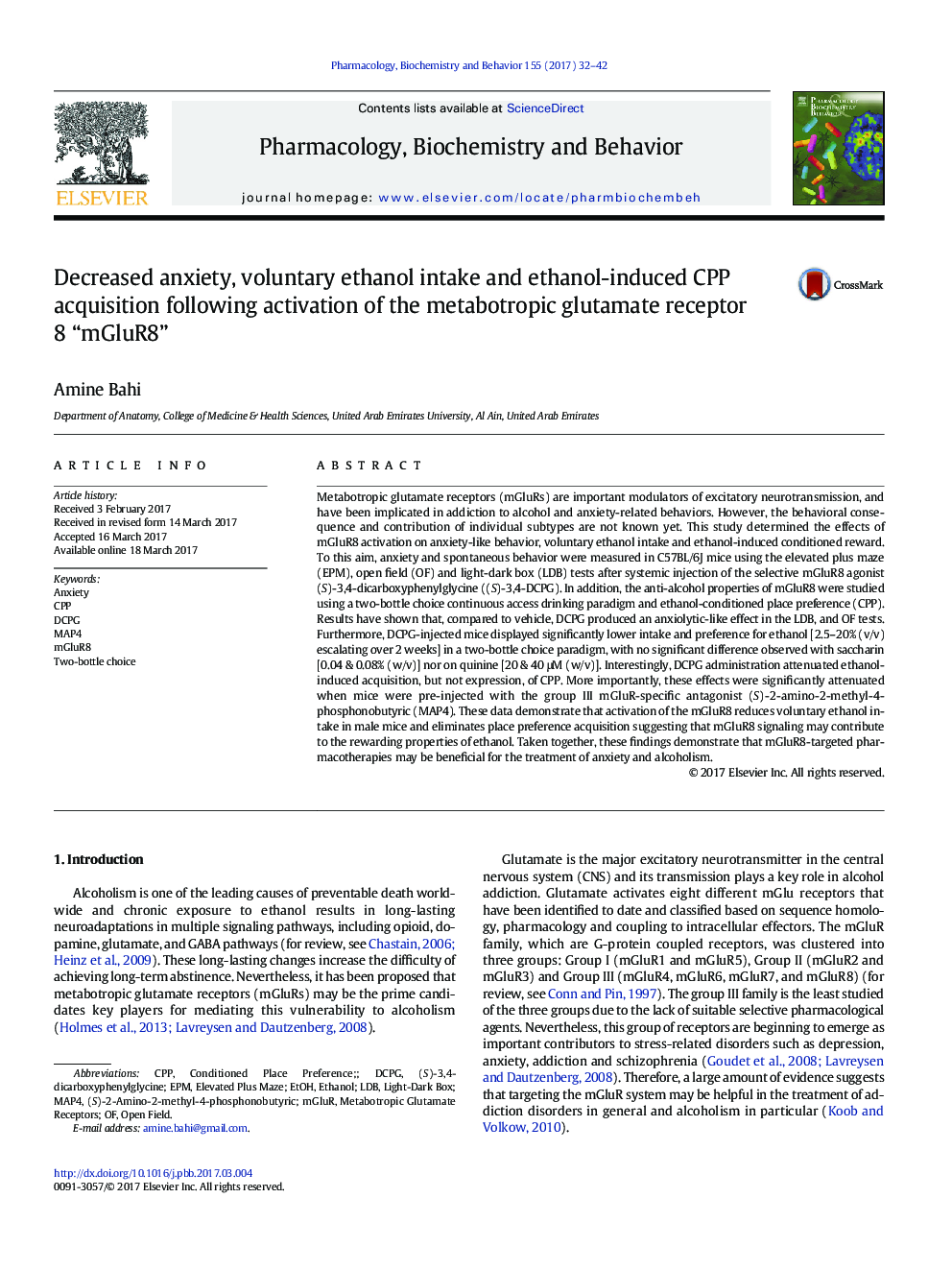| کد مقاله | کد نشریه | سال انتشار | مقاله انگلیسی | نسخه تمام متن |
|---|---|---|---|---|
| 5515187 | 1541832 | 2017 | 11 صفحه PDF | دانلود رایگان |

- DCPG decreased anxiety-like behavior in the open field and light-dark box tests.
- DCPG reduced ethanol, but bot saccharin nor quinine, consumption, and preference.
- DCPG decreased acquisition, but not expression, of ethanol-conditioned place preference.
- Anti-alcohol effects of DCPG were abrogated by the group III mGluR antagonist MAP4.
Metabotropic glutamate receptors (mGluRs) are important modulators of excitatory neurotransmission, and have been implicated in addiction to alcohol and anxiety-related behaviors. However, the behavioral consequence and contribution of individual subtypes are not known yet. This study determined the effects of mGluR8 activation on anxiety-like behavior, voluntary ethanol intake and ethanol-induced conditioned reward. To this aim, anxiety and spontaneous behavior were measured in C57BL/6J mice using the elevated plus maze (EPM), open field (OF) and light-dark box (LDB) tests after systemic injection of the selective mGluR8 agonist (S)-3,4-dicarboxyphenylglycine ((S)-3,4-DCPG). In addition, the anti-alcohol properties of mGluR8 were studied using a two-bottle choice continuous access drinking paradigm and ethanol-conditioned place preference (CPP). Results have shown that, compared to vehicle, DCPG produced an anxiolytic-like effect in the LDB, and OF tests. Furthermore, DCPG-injected mice displayed significantly lower intake and preference for ethanol [2.5-20% (v/v) escalating over 2 weeks] in a two-bottle choice paradigm, with no significant difference observed with saccharin [0.04 & 0.08% (w/v)] nor on quinine [20 & 40 μM (w/v)]. Interestingly, DCPG administration attenuated ethanol-induced acquisition, but not expression, of CPP. More importantly, these effects were significantly attenuated when mice were pre-injected with the group III mGluR-specific antagonist (S)-2-amino-2-methyl-4- phosphonobutyric (MAP4). These data demonstrate that activation of the mGluR8 reduces voluntary ethanol intake in male mice and eliminates place preference acquisition suggesting that mGluR8 signaling may contribute to the rewarding properties of ethanol. Taken together, these findings demonstrate that mGluR8-targeted pharmacotherapies may be beneficial for the treatment of anxiety and alcoholism.
Journal: Pharmacology Biochemistry and Behavior - Volume 155, April 2017, Pages 32-42